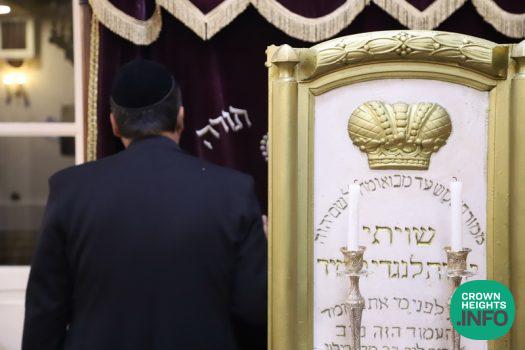
Weekly Dvar Torah: The Miracle of Elul – Teshuva
Elul is here. The month of preparation for Rosh Hashana and Yom Kippur is not only a season of repentance, but of extraordinary mercy. G-d draws close, extending His kindness to us before judgment is even pronounced. This is the secret of Teshuva — the miracle that a human being can return, erase a past of wrongdoing, and stand renewed before G-d. Such transformation is not logical. It can only be born out of Divine mercy.
The Talmud tells us that Teshuva was created before the world itself. That is because the world, once tainted by sin, has no natural way of repairing itself. Only G-d, in His infinite kindness, carved out the possibility of Teshuva. Without it, our misdeeds would cling to us forever. With it, we can not only return but even elevate — turning the very forces of the past into fuel for greater holiness.
But Teshuva is not self-generated. It is a gift. The ability to rewrite our own story, to undo what was once done, is the greatest expression of G-d’s compassion. And in Elul, that compassion is closer than ever.
Our sages teach that Torah study and prayer each have the power to annul harsh decrees. Torah illuminates, bringing the clarity of G-d’s truth into the world. Tefillah ascends upward, carrying our cries to Heaven. Yet there is a third path, one that combines both: the recitation of Tehillim.
Tehillim is Torah clothed in prayer. King David gave voice to every possible cry of the Jewish soul — joy, sorrow, fear, hope, guilt, longing. No matter where a Jew may stand, there is a chapter of Tehillim that mirrors their heart. And that is why the Rebbeim taught us to lean especially on Tehillim during Elul.
The Frierdiker Rebbe relates a remarkable tradition. When he was nine years old, his father, the Rebbe Rashab, instructed him to add three extra chapters of Tehillim each day during Elul. This instruction was not unique. Each Rebbe, beginning from the Tzemach Tzedek, had received the same guidance from their (grand)father when they were nine years old. It is striking that this holy custom — increasing in Tehillim in the days of mercy — was specifically transmitted to the Rebbeim at such a tender age, embedding in them from childhood the power of prayer to arouse compassion.
The Rebbe Rashab explained that his own father, the Rebbe Maharash, had told him the story as he received it from his father, the Tzemach Tzedek. The Tzemach Tzedek, in turn, had heard it from his grandfather, the Alter Rebbe, who had emphasized that Torah and Tefillah each reach upward, but Tehillim has the unique power to break through every barrier, even where other paths cannot reach.
And so, across the generations, this teaching was passed from Rebbe to Rebbe – father to son, each one impressing upon his child that in Elul, the time of mercy, the Jewish heart must cry out with Tehillim.
Why Tehillim? Because Teshuva itself depends on G-d’s mercy. The power to reverse one’s past and transform sin into holiness is not natural — it is granted from Above. And nothing awakens this mercy like Tehillim. The tears, the raw simplicity, the unpolished yearning contained in King David’s words reach where the most eloquent prayer cannot.
This is why the Rebbeim insisted on this practice. By saying extra Tehillim in Elul, we are not merely “preparing” for the High Holidays. We are drawing down the very compassion that makes Teshuva possible — the Divine kindness that allows us to change, to heal, to become new.
There is yet another dimension. Teshuva is not only about sadness over the past; it is also about joy for the future. The ability to return, to be forgiven, to start again, is itself a cause for celebration. That is why the prophets describe Teshuva with images of song and rejoicing. The Jew who returns is not crushed but uplifted, not defeated but reborn.
In Elul, when G-d showers us with compassion, we experience this joy in advance. We sense that Teshuva is not a burden but a gift — the greatest gift ever given. And we respond with gratitude, with singing, with heartfelt joy in knowing that no distance is too great, no past too dark, no soul too lost.
As we walk through the days of Elul, the lessons converge. Teshuva is possible only because of mercy. That mercy is awakened most purely through Tehillim — words that have broken through every barrier across generations, words that every Jew can say. And when Teshuva is reached, it culminates not in sorrow but in joy, for the soul restored is greater than before.
Elul is here. It is a month of tears and a month of song, a month of trembling and a month of joy. Above all, it is the month of mercy — mercy that allows us to return, to transform, and to prepare for the new year as renewed souls.
Elul teaches us the paradox at the heart of Judaism: that human beings can change the past, not because they have the power, but because Hashem’s mercy allows it. It teaches us that the deepest failures can become the sources of the deepest connection. And it teaches us that the key to it all lies not only in intellect or ritual, but in the brokenhearted sincerity of Tehillim, the song that evokes mercy and makes Teshuva possible.
As Elul unfolds, may we have the courage to open our hearts, the humility to ask for mercy, and the joy of discovering that Hashem grants it freely.
Have a Merciful Shabbos,
Gut Shabbos
Rabbi Yosef Katzman











